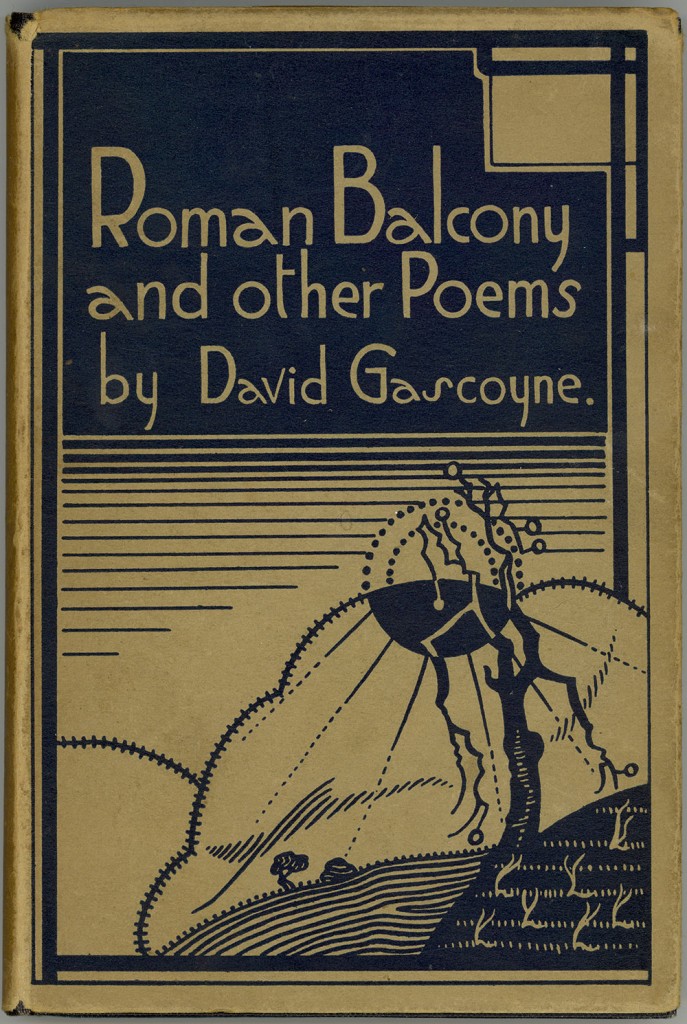 This post is part of an ongoing series featuring items from the newly acquired Santo Domingo collection.
This post is part of an ongoing series featuring items from the newly acquired Santo Domingo collection.
The Santo Domingo collection is broad in scope, but its many volumes also accommodate exhaustive collecting of a number of particular authors. Among these is David Gascoyne (1916-2001), the British poet and translator known for his association with the Surrealist movement in his early career. Processing is currently underway on an archive of Gascoyne’s papers as part of work on Santo Domingo.
Gascoyne is also known for his precocity – his first volume of poetry, Roman Balcony and Other Poems, was published when he was only sixteen, and his first and only novel, Opening Day, followed the next year. It was after these two early works that Gascoyne traveled to France; his exposure to Surrealism led him to become one of relatively few British authors involved with the movement. The poems Gascoyne produced during this period, as well as his translations of French Surrealist poetry, were first collected in Man’s Life Is This Meat; Gascoyne also wrote A Short Survey of Surrealism, a seminal chronicle of the movement.
Influential though this period was, it would not come to define the poet: Gascoyne parted ways with Surrealism soon after, going on to pursue his own poetic idiom. His productivity dropped off severely in later years, particularly after amphetamine abuse and a nervous breakdown in the 1960s led to his hospitalization. Though he wasn’t writing new poetry, rediscovered early works continued to be published; among these were two volumes of Gascoyne’s journals from his Surrealist period. Houghton’s newly-acquired Gascoyne archive includes all of Gascoyne’s monographs, books from his library, and numerous literary journals and anthologies in which his poetry and translations appear – beginning with poems he submitted to his school newsletter as a 13-year-old at Salisbury Cathedral School in 1929.
David Gascoyne. Roman balcony and other poems. [London]: Lincoln Williams, 1932. EC9.G2117.932r.
Thanks to rare book cataloger Ryan Wheeler for contributing this post.


